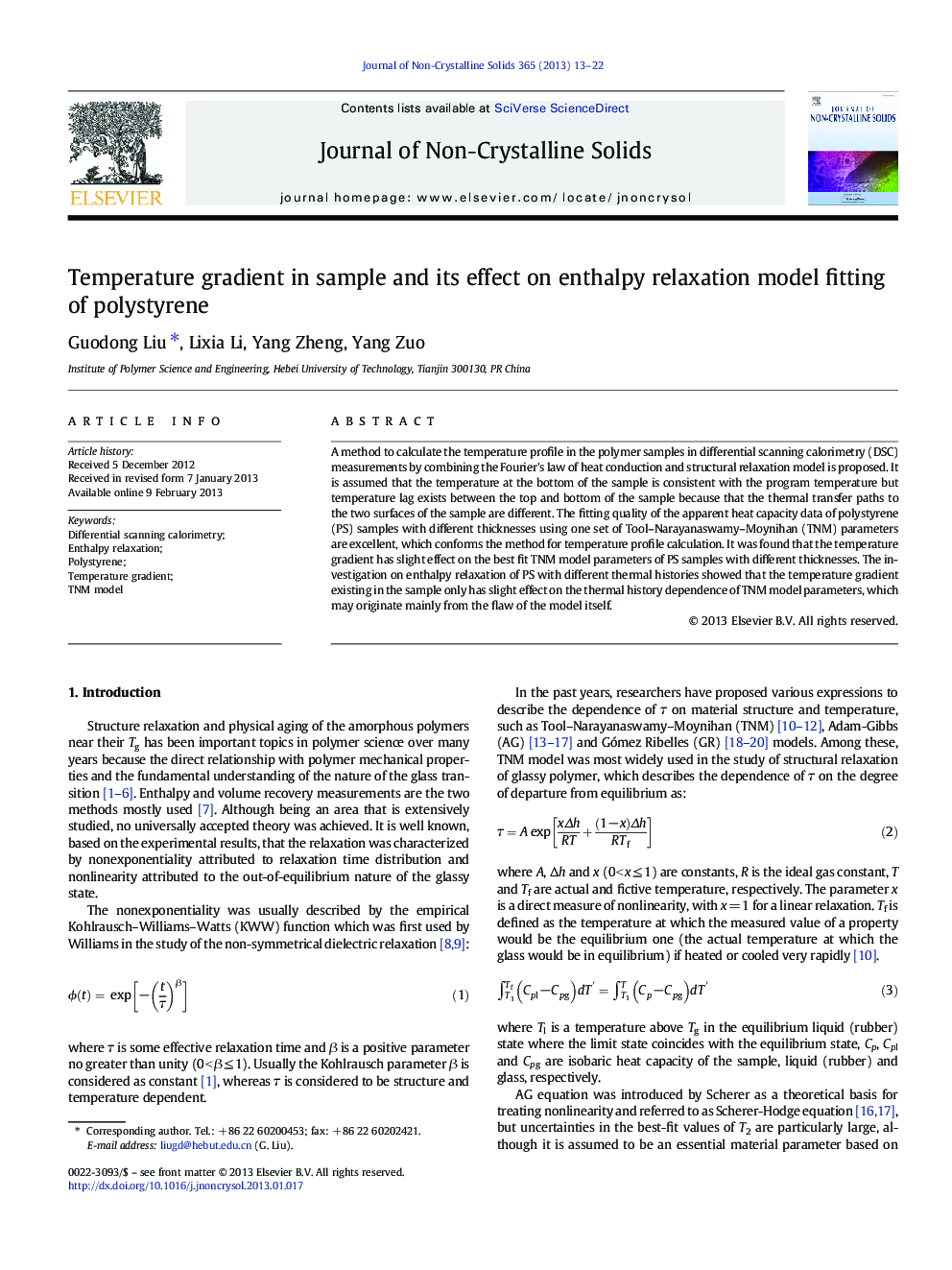| Article ID | Journal | Published Year | Pages | File Type |
|---|---|---|---|---|
| 1481320 | Journal of Non-Crystalline Solids | 2013 | 10 Pages |
A method to calculate the temperature profile in the polymer samples in differential scanning calorimetry (DSC) measurements by combining the Fourier's law of heat conduction and structural relaxation model is proposed. It is assumed that the temperature at the bottom of the sample is consistent with the program temperature but temperature lag exists between the top and bottom of the sample because that the thermal transfer paths to the two surfaces of the sample are different. The fitting quality of the apparent heat capacity data of polystyrene (PS) samples with different thicknesses using one set of Tool–Narayanaswamy–Moynihan (TNM) parameters are excellent, which conforms the method for temperature profile calculation. It was found that the temperature gradient has slight effect on the best fit TNM model parameters of PS samples with different thicknesses. The investigation on enthalpy relaxation of PS with different thermal histories showed that the temperature gradient existing in the sample only has slight effect on the thermal history dependence of TNM model parameters, which may originate mainly from the flaw of the model itself.
► A novel method to calculate the temperature profile in polymer samples in DSC measurements. ► The temperature lag between the top and bottom of the sample is considered. ► An excellent fitting results with the experimental apparent heat capacity data of PS samples with different thicknesses.
